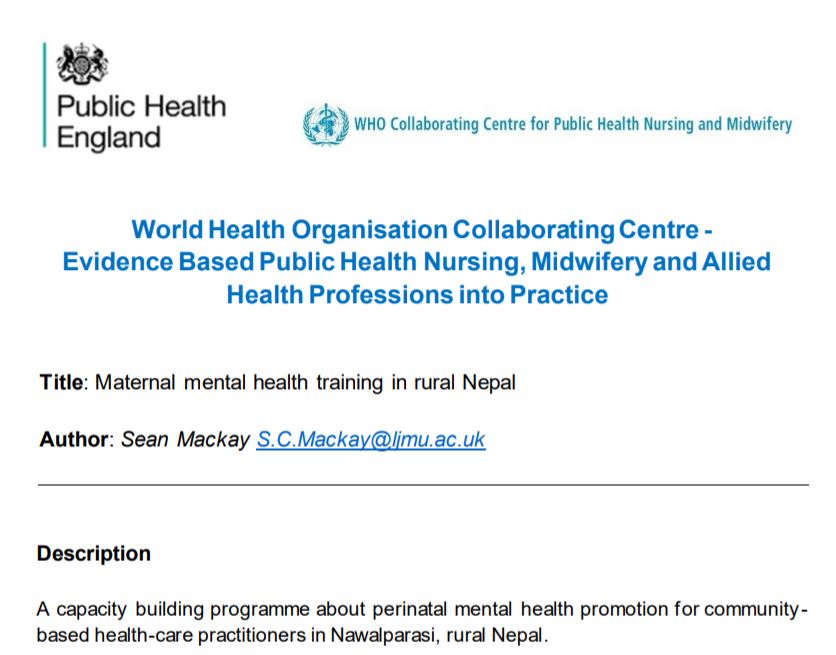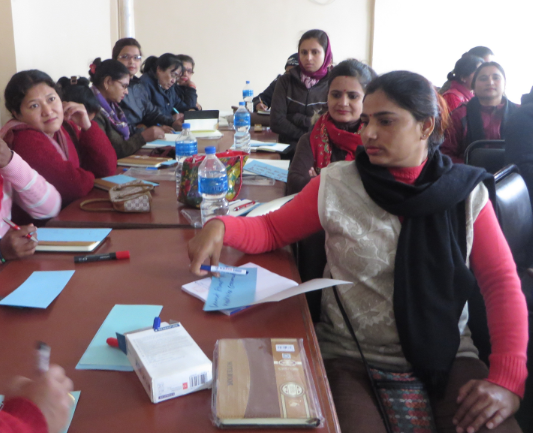Parliament has prorogued at close of business on Thursday, returning for the State Opening of Parliament on Tuesday 11 May. Despite this it is likely the news will continue apace particularly with the post qualification admissions consultation responses coming in thick and fast. This week’s policy update has NEON’s admissions response. HEPI have a paper out on student sexual consent, and there was significant parliamentary activity in the HE sphere with oral questions, topicals and the Universities Minister in front of the Education Committee.
Government Direction for HE
Michelle Donelan, Universities Minister, was questioned in the regular accountability session by the Education Committee this week. The committee examined the Government response to the Covid challenges for HE, particularly learning, job-seeking and mental health. They questioned the minister on antisemitism, race hate and Islamophobia in universities. They also heard the Government’s plans for widening the scope of HE and their programmes to tackle levelling up. A summary of Donelan’s responses, prepared by Dods, is here. The session was illuminating when reading between the lines to see which policies the Government’s ardour for has cooled, which they’re in a pickle about (but determined to continue to intervene), and which they will continue to push.
In short (topics in bold so you can pick out your interest areas):
- Donelan refused to consider student compensation for the Covid changes to their educational experience.
- Donelan would not state whether the Opportunity Areas would continue after 2021. However, on the contentious matter whereby some of the most deprived areas of the country were not selected as opportunity areas she responded that these areas would get investment and other initiatives dedicated to them, not just from the DfE but from other Government departments. Wonkhe say the Opportunity Areas announcement will be made between May and the summer.
- Careers support – the DfE is preparing a package of measures (developed in conjunction with universities) for the Covid graduates facing a hostile job market.
- Donelan also stated that employers would take into account that graduates had missed out on placements and course content when making their hiring decisions.
- Donelan evaded a response on whether Access and Participation Plan funding should be contingent on universities offering degree apprenticeships but assured the committee that there would be more on offer across the country.
- Sector stability – Donelan said that no institution was “imminently about to go into financial liquidation” and “not one single university” had accessed the Government’s “restructuring regime” safety net.
- Donelan provided a woolly response on post qualification admissions: she acknowledged that there were different opinions on the efficacy of the initiative and encouraged everybody to get involved with the consultation before it closed on 13 May 2021 because the Government wanted to engage with people to make sure they got this right.
- On free speech Dods summarise the exchange:
- Hunt cited research by Policy Exchange that had said “almost 50 per cent of right-leaning academics in non-STEM subjects self-censored their work” because of pressure and asked what the Government meant to do to ensure these academics felt comfortable to conduct their research.
- Donelan agreed this was a concern not just for academics but also for students and visiting speakers and said that the Government had recently published a paper on this which had proposed creating “a champion of free speech” and establishing “a statutory tort”.
- Citing a 2018 OfS board paper that had found “no evidence of free speech being systematically suppressed” in universities, Kim Johnson suggested this creation of a free speech champion was just “an intensification of Tory culture wars”. Donelan did not agree and insisted this was a measure to encourage free speech for all students and academics.
- Kim Johnson asked Donelan to explain why it was appropriate for someone in her position to describe “decolonising the curriculum” as “a Soviet Union-style censoring of history” and asked if she would apologise for her remarks. Donelan replied that she was happy to email Johnson the podcast of her comments and defended her position.
- On Universities who do not wish to sign up to the International Holocaust Remembrance Alliance definition of anti-Semitism Donelan stated the DfE would “continue to urge all universities to sign up to this” and said that the Government was looking at whether it should be “potentially mandating universities to publish incidences” to “highlight whether the definition is having an impact on the ground”. Sacking individual academics who did not conform to the definition was also discussed.
- Wonkhe reported that Halfon (Committee Chair) discussing the University of Bristol antisemitism investigation into an academic’s comments asked Donelan: Why would you not intervene, to deal with this and tell Bristol, the Vice Chancellor that enough is enough, and that we’re not living in 1930s Germany, and that they should deal with this problem and make sure that Bristol University is not a hostile environment to Jewish students.” Wonkhe’s daily briefing also stated the heated language fuelled stories in several newspapers…The Guardian, i News, the Telegraph, the Evening Standard, and the Mailreport on the call for greater consequences for universities failing to tackle antisemitism.
Wonkhe also have a good blog delving into the accountability session which is worth a read. It begins:
- Maybe there was never a golden era of select committee scrutiny, when members had actually read up on their brief and held ministers to actual account for their promises. Either way, much of the session felt surface-level and shouty – eminently clippable for Twitter, but not actually serving the public in any meaningful way.
- … The committee never really got close to exploring some of the potentially uncomfortable contradictions inherent in the government’s free speech agenda and its views on antisemitism, but it did at least get near to a related issue – that the government is intending to legislate over free speech (where there are already specific legal and regulatory duties) but is not intending to legislate over campus racial and sexual harassment and misconduct (where there are no specific legal and regulatory duties).
- Underpinning the whole discussion – from an antisemitism perspective, a mental health perspective and from a gender based violence perspective – is the ongoing, undefined sense that universities have a “duty” to provide a safe environment and a “duty” of care over students – without ever properly establishing those duties, or providing sanctions for those that don’t exercise them.
- Contrast that with the agenda over freedom of speech. Both Tom Hunt and Jonathon Gullis highlighted, exaggerated and embellished some of the dodgier stats from that Policy Exchange report, with the latter demanding to know why the “woke mob” is “ruining higher education”…
- … It was left to Fleur Anderson (Lab, Putney) to gently point out some of the potential contradictions:
- You mentioned that you would be considering or actually bringing in free speech work as to be tied to universities’ registration conditions. But before when we were talking about the IHRA definition of anti-Semitism, and about sexual harassment conditions, you said you wouldn’t be bringing that in as to tie that into universities’ registration conditions, and you’d be waiting for consultations and seeing how it goes – why is it that you would bring it in for free speech, but not for those two other areas of high concern for students?”
- Ian Mearns (Lab, Gateshead) wanted to know why there’s not been an immediate inquiry – given that in schools there is to be an urgent review of the situation:
- Why don’t you mirror that in universities and where, in universities victims of harassment and assault often complain of being left in the dark about the outcome or the progress of university investigations and quite often feel that their disclosure has been a waste of time, traumatising, but fruitless? So is it not requiring more urgent ministerial action than a statement of expectations from the Office for students?”
- Donelan said that UUK will be publishing a report and that she’d be meeting with OfS, which does make you think her theory of change might be faulty.
Minimum entry requirements to HE: Finally Wonkhe’s data guru, David Kernohan, provides modelling to demonstrate that there’s a clear relationship…demonstrating that a minimum entry qualification rule would disproportionately affect young people from disadvantaged backgrounds (no levelling up here!) and that we have a problem in retaining students from disadvantaged backgrounds anyway.
Research
Advanced Research and Invention Agency – here’s the latest progress on ARIA.
- The grouped amendments to the Bill have been published.
- The Bill has now completed the Committee stage and will be returning to the Commons for its Report stage and Third Reading. No date is currently scheduled but it will be during the new parliamentary session as Parliament will prorogue at close of play on Thursday.
Government response – Meanwhile the Commons Science and Technology Committee published the government response to their report on the proposed new high-risk, high-reward research funding agency (now known as ARIA).
Wonkhe summarise:
- It sees further push back on the idea that ARIA should have “explicitly defined ‘missions’ or ‘challenges’ … set by central government”, confirming that the new agency will see the research focus set by programme managers rather than ministers.
- It is revealed that these programme managers will be paid outside of usual public pay restrictions, pending approval with HMT. The response demonstrates further commitment to the wording on the face of the bill on a separation from UKRI – I went through the bill (almost) line by line at the time. The response also covers work underway to examine any “bureaucratic constraints” on UKRI.
Hancock Speech: Matt Hancock spoke at the Association of the British Pharmaceutical Industry annual conference. He spoke of the UK becoming a life sciences superpower and stated three things the Government and, separately, industry could do to realise this ambition.
Government
- Examine regulation and trial design: “research and clinical research and regulation, how it’s regulated, making sure that it is dynamic, modern, fit for purpose, where we have a big role to keep constantly making sure that we regulate for science and safety, and not for bureaucracy”.
- Get investment right: through the likes of the Life Sciences Investment Programme
- Developing skills: noted the Life Sciences 2030 skills strategy
Industry
- Manufacturing and the location of manufacturing: Spoke about the importance of fostering homegrown manufacturing capabilities. The Government has established a new Manufacturing Transformation Fund as an incentive; and Hancock has asked the Life Sciences Council to lead on this work.
- Backing genomics: The Government has asked the Medical Research Council to develop a proposal for a UK Functional Genomics Initiative, through this initiative Gov want to make the UK a world leader in new approaches to understanding how genetic changes cause disease, and through that, the validation of drugs targets, later this year they’ll be launching our genome UK Implementation Plan.
- Clinical research: wants to make the UK the most advanced and data-enabled clinical research environment in the world. Said he set out the next steps with a £20m investment in the new data-driven Find, Recruit, and Follow-Up service for clinical trials.
Funding Cuts – here are some excerpts from oral questions with Universities Minister Donelan which bring home the impact of the Official Development Assistance budget cuts:
- Kirsten Oswald: The Universities of Glasgow, Leeds, Liverpool, Newcastle and Coventry have all been leaders in the global challenges research fund. With the cuts to ODA, they are now having to find additional seven-figure funding to keep life-saving research going. Is this really the Tories’ fabled levelling-up agenda?
- Michelle Donelan: The Government recognise the importance of supporting international research partnerships and the UK research sector, especially our universities. Our commitment to research and innovation was clearly demonstrated by the recent Budget announcement that we are increasing investment in research and development to £14.6 billion. International collaboration is central to a healthy and productive R&D sector and, as a result of the policies of this Government, UK scientists will have access to more public funding than ever before.
- Stuart C. McDonald: Twelve flagship research hubs were supposed to run projects lasting five to 10 years in support of the sustainable development goals. Some of those projects are midway through clinical trials on humans but, thanks to the recent cuts, might not be able to continue, thereby jeopardising both the research and research jobs. How on earth can the Government justify funding cuts to research projects in the middle of human clinical trials, in clear violation of medical ethics?
- Michelle Donelan: The hon. Gentleman might like to take up his question with the Department for Business, Energy and Industrial Strategy, which is ultimately responsible for research. On 1 April, BEIS set out an additional £250 million of funding for R&D—as a result of which, as I have said, UK scientists will have access to more public funding than ever before—taking the total Government investment in R&D to £14.9 billion in 2021-22, despite what the Opposition would have the public believe.
- Alan Brown: Because of the ODA cuts, universities have reported that research contracts have been terminated, sometimes with just a few hours’ notice. This has undermined trust between researchers, universities and UK Research and Innovation, and it also means that research commissioners now require a risk assessment on the UK Government’s ability to honour contracts. Why does the Minister think it is acceptable that the UK Government’s promises mean so little that they need to be risk assessed?
- Michelle Donelan: On the actual ODA allocations, BEIS is currently working with UKRI, all global challenge research funds and its Newton fund delivery partners to manage the financial year 2021-22, including by determining which projects will go ahead. Its delivery partners have been communicated with, and award holders will set out the next stages of the review of ODA funding next year and explore the options available for individual programmes.
Separately, Wonkhe report: The House of Lords Science and Technology Committee has written to Boris Johnson and Rishi Sunak to urge action on government funding cuts to scientific research. The committee recommends that the government ensures adequate funding for UK’s participation in Horizon Europe, maintains funding for research in developing countries, and recommits to spending £22bn on research and development by 2024-25.
Parliamentary Questions
Racial harassment
This week there was a BBC3 documentary on racism in universities with interviews with students who experienced racial incidents or harassment whilst at university.
Wonkhe tell us:
- The programme explored the students’ experiences of making a complaint to their institution, suggesting that none had found that the process offered the redress they were hoping for.
- David Richardson, vice chancellor of the University of East Anglia and chair of the Universities UK advisory group on tackling racial harassment, who was interviewed for the show, put the view that universities are systemically and institutionally racist, and invited Adey [the documentary journalist] to follow up in the summer of 2022 when Universities UK plans to review progress on its racial harassment work. His comments are coveredin the Guardian. The documentary received reviews from the Guardian, the Telegraph, and i News.
Also there is a Wonkhe blog from November 2020 – David Richardson explained why he believes universities are institutionally racist – and what can be done about it.
Sex and Relationships
HEPI published a new poll and a report on sex and relationships among students (shorter content here). Dods provided a summary of the report – contact us if you wish to access this. Or read on for excerpts from Research Professional’s coverage here and here:
- Hepi surveyed just over 1,000 students, 58 per cent of whom strongly (26 per cent) or slightly (32 per cent) agreed that students should have to pass a quiz on sexual consent before beginning their studies.
- Some 59 per cent of students asked said they were “very confident” about what constituted sexual consent, but just 30 per cent said they were confident in navigating consent issues after drinking alcohol. Only 6 per cent of students said they strongly agreed that their previous education had “prepared them for the reality of sex and relationships in higher education”.
- The findings of the research are split into three sections: knowledge and attitudes; experiences and behaviours; and other issues.
- It is a wide-ranging report that covers freshers’ attitudes to sex (“Only 16 per cent of students say: ‘When first going to university, I was excited about having sex’”); the challenges of higher study (40 per cent of female students “report that symptoms of their periods may have stopped them from doing their best effort in academic assignments”); and safety (36 per cent are only “fairly confident” about “who and how to contact someone” if they are concerned about an aspect of sex such as bullying, coercion or regret).
- universities are under pressure to improve how they tackle complaints of sexual harassment…Recently, the Everyone’s Invited website, which publishes accounts of sexual harassment in education, released the names of more than 100 universitieswhere students alleged they were sexually harassed or abused.
- On our news pages yesterday, we also carried comments from Jess Phillips, shadow minister for domestic violence and safeguarding. Speaking at a Westminster Higher Education Forum event earlier this week, Phillips raised concerns that institutional autonomy had left a “patchwork of provision for victims”, and that national standards and guidance were needed to tackle sexual harassment in higher education.
- During the conference, Phillips, Labour MP for Birmingham Yardley, called on universities to make sure they were offering “proper support and care” to victims. She said they also needed to explore “how we actively prevent perpetration in our institutions and how we deal with perpetrators”.
The Times Higher also covers the consent test.
HEPI blog: The Commission on Race and Ethnic Disparities report and disaggregating BAME in higher education
Admissions
A report, published by the University and College Union (UCU) and National Education Opportunities Network (NEON) ,says “a move to post-qualifications applications (PQA) is essential in creating a fairer, student centred university admissions system. It also shows how the move could lower excessive workloads for school, college and university staff.”
Wonkhe: DK has taken a look on Wonk Corner.
Dods explain the thinking further: the case for PQA is presented as three-fold:
- Enabling widening access by removing application via predicted grades: Over 80% of these grades are incorrect leading to students being potentially ‘under-matched’ to courses they could apply to.
- Enhanced performance of students at Level 3: Removing unconditional offers and predicted grades will enable teachers and students to focus more clearly on Level 3 studies.
- Improving graduate outcomes and the student experience: Nearly half of all students who enter HE via clearing or who are from a BAME background are unhappy with their choice of course or institution. This level of dissatisfaction is unacceptable and shows that reform of how students make HE choices is required.
The student-centred PQA model describes HE admissions as a three-phase process. Drawing on the evidence regarding how young students make HE choices, admissions is defined as beginning significantly earlier than in the PQA models outlined in the government consultation document. These three phases are:
- Supporting choice: Year 10 to A-Level/Level 3 examination results announced
- Application and decision making: HE application week early August to end September
- Entry in HE: From the first to the final week of October when term starts for year 1 students
The student-centred model has 7 distinctive features that address the challenges associated with moving to post-qualifications applications:
- Strengthened information, advice and guidance (IAG) on HE
- Fundamental to making a PQ applications model feasible is a significant strengthening in the IAG offered to learners before they apply to HE.
- It is proposed in the report that this strengthening would have five elements:
- an entitlement to 10 hours per year of HE IAG from year 10
- in addition to the entitlement, a national student futures week at the end of year 12 when students would focus solely on learning about future post-compulsory education options through visits to HE, sessions with students etc
- revising the present Gatsby Good Career Guidance benchmarks related to HE IAG
- a national collaborative outreach project such as the Uni-Connect programme
- a ‘study choice check’ where students undertake online course focused questionnaires to better understand course(s) they have expressed an interest in and their fit with them.
- Expression of interest point to engage students/HEIs pre-application
- A strength of the current system is that students need to engage with HE choices whilst in school/college in order to apply for HE.
- To retain this strength students would, via UCAS, ‘express interest’ in up to five courses in the January of the year of examinations. This information would be passed onto HE providers.
- Expression of interest would meet the following challenges in a post qualifications applications system:
- Completion of the application form accurately by students – at this point students would register with UCAS and upload personal statement, reference and background information reducing the need for support in HE application week.
- HEIs understanding future course demand – this will give valuable information to HEIs on potential course demand which they can then use in their planning.
- HEIs engaging with students who wish to enter their institutions – enabling greater support for potential applicants in particular those from specific groups e.g. disabled students and refugee/asylum seekers.
- Making A Levels a less ‘high stakes’ examination – transparent use of other assessment mechanisms including references, personal statements and interviews/tests will help alleviate the focus on examinations only that may be heightened in a PQA system.
- Flexibility to allow interviews/auditions before application
- Delivering interviews/undertaking auditions is seen as a major challenge in a post-qualifications applications system due to the compressed window available for this activity.
- This report shows there are at least six options available for HEIs wishing to deliver interviews/ auditions in a post-qualifications applications system. These include:
- delivering interviews/auditions for all students who express an interest in before examination results are announced
- delivering interviews/auditions utilising digital technology after examination results
- using admission tests to either replace interviews or to enable filtering of students who can then be interviewed before examination results are announced. Such additional testing is common in other countries.
- For those institutions/courses where interviews are deemed essential, the report illustrates that it is still possible to deliver these before examination results are announced.
- The report does discuss though the need for a more in-depth discussion regarding the role of interviews in HE admission and the extent to which they may undermine attempts to contextualise admission to high-demand courses.
- Another option discussed for policymakers here is to reintroduce AS Levels which to allow prior potential to be gauged more accurately and hence enable filtering for high demand courses
- A greater focus on transparency
- At present the HE admission system does not meet the principle of transparency which is one of the five principles from the 2005 Schwartz review of fair admissions to HE.
- Students are not systematically informed of the relative importance placed on the different forms of assessment of their potential used by HEIs.
- In the SC model students would be told exactly what weight is placed on references, personal statement, interviews/tests/auditions and examination grades in percentage terms by HEIs in deciding whether to offer a place to a candidate.
- More targeted support for widening access students in HE application week
- The risks that additional burdens would fall upon schools/colleges to support students, in particular from widening access backgrounds, at the point of final application are real and must be addressed.
- Improved IAG and the expression of interest point would help but greater support for students from widening access backgrounds is required.
- This support could come via an enhanced Uni-Connect programme, personalised contact via email/letter/face-to-face and HEIs using the experience they have gained from delivering clearing to offer support during the final application and decision phase.
- Fewer course applications processed to improve efficiency and choice
- In 2019 in England, Scotland, Wales and Northern Ireland there were:
- 1,965,090 applications made to HE providers via the UCAS main scheme
- 1,444,795 offers made to students
- 428,610 acceptances.
- Of these applicants 73.6% of students accepted the offer from their first choice provider.
- There are over 1.5 million applications that do not lead to any productive outcome in a system where the vast majority of students enter their first choice provider.
- For administrative efficiency and to aid students in their decision making, in the SC model the number of applications released to HEIs could be reduced to three from the five applications, with the other two only released if candidates are not placed via their first three choices. Alternatively, they could be just reduced to three.
- More flexibility in when the academic year begins
- At present the timing of the academic year is not uniform. It can begin from mid-September to mid-October depending on the provider and can finish from late May to early July.
- The timing of the academic year should remain the decision of HEIs. It is feasible though, as shown in the report, to deliver the academic year beginning with an induction week that starts in late October and finishes mid- June.
- A late October start is therefore a possible option for HEIs to explore in a post-qualifications applications model to give greater time for HEIs to process applications and students to prepare for HE entry
UCU general secretary Jo Grady said: After years of campaigning by UCU and others, we are finally on the cusp of tackling the unfairness in university admissions. But too many organisations seem wary of the bold reform that will end the use of unfair predicted grades. This report shows the blight of predicted grades must end if we are to remove the disadvantages students currently face. It also shows the impact of changes to the admissions cycle on universities and staff can be easily overcome, and highlights the benefits to both staff and students that a post-qualifications applications system will bring. The time has come for a truly student centred approach to university admissions, and we must not settle for half measures.
NEON director Graeme Atherton said: A post-qualifications applications system is a gateway reform that can assist in widening access to higher education, improving graduate outcomes and providing the impetus for a long overdue focus on the information, advice and guidance that students receive on their journey to higher education. The report outlines a roadmap to how we build this new system.
We’ll see more commenting on post qualification admissions over the next few weeks as the consultation on the topic is set to close on 13 May.
HEPI blogs:
Access & Participation
Hardship Funding: Universities Minister, Michelle Donelan, has written to the OfS to provide guidance on the distribution of hardship funding. She writes that the OfS should use the existing student premium funding mechanism to distribute the funding, taking into account the following priorities:
- That funding is targeted towards those providers who recruit and support high numbers of disadvantaged students, reflecting where this funding is needed most to enable students to continue with their courses and achieve successful outcomes.
- That full-time and part-time students will both be at risk of experiencing hardship resulting from the pandemic, but full-time students may be particularly affected, e.g., due to changes in their location of study.
Donelan also outlines details of payment, terms and conditions, and monitoring, e.g. the funding must be fully spent this academic year.
COSMO Study: A new study to follow the outcomes – educational, career and wellbeing – for 12,000 year 11 students across England will be the largest study of its kind to find out how the pandemic has affected them. The study, called the COVID Social Mobility and Opportunities (COSMO) Study, will receive £4.6 million from the UK Research and Innovation (UKRI). It will be led by researchers from the UCL Centre for Education Policy & Equalising Opportunities and the Sutton Trust.
The Sutton Trust has commissioned an additional sample of young people from disadvantaged backgrounds who showed academic potential before the pandemic, to look in more depth at the impact on their chances for social mobility. This work will be funded by XTX Markets.
Quick News: Published a few weeks ago – a description of the constant adjustment a first in family student experiences.
Turing
On Monday oral questions covered an exchange on the Turing scheme. It shows the Government as steadfast in their decisions and unmoved by the reduction in funding available under the scheme:
- Carol Monaghan (Glasgow North West) (SNP): The Government have stated that they want more disadvantaged students to participate in Turing, so how does the Secretary of State assess the success of this scheme for disadvantaged students, and will he commit to an annual report to Parliament on these figures?
- Gavin Williamson (SoS Education, Conservative): We have already seen a really high level of interest from both institutions and, most importantly, students in the new Turing scheme. They recognise that they want to seize the opportunities on a global scale as against being constrained by the European Union. That is why I have every confidence that we will have such an enormous success with the Turing scheme and it will be truly transformative to young people’s lives.
- Matt Western (Shadow Universities Minister, Labour, Warwick and Leamington): This is a Government of illusion. The Prime Minister said that there was no risk to Erasmus, then it was gone, replaced with the Turing scheme, which Ministers said would improve opportunities. But a quick look at the scheme shows that for cost of living, Turing offers just £490 of support—£140 less than Erasmus—while for travel costs, only a fraction of students are now eligible whereas under Erasmus+ all students were eligible for up to £1,300. In tuition fees, there is no support, whereas it was guaranteed under Erasmus for free. Could the Secretary of State just be straight with students and confirm that Turing equals Erasmus minus?
- Gavin Williamson: I am afraid the hon. Gentleman obviously is not very familiar with the scheme. Actually, there are a number of slight inaccuracies in what he stated. I would be happy to send him the details so that he can undertake some homework and understand it a little bit better in future.
Exchange: Turing+ (Erasmus): Prior to this, on Sunday, Chris Skidmore wrote for Research Professional to turn the tables and put the onus on universities to find solutions to the Erasmus demise. He writes:
- Higher education does not have to wait for the government to step in. It should flex its autonomy by demonstrating its ability to create an exchange scheme—not in the mould of Erasmus+, but one that will allow European or international students to study for, perhaps, a term rather than a year. The creation of modular-based provision should help, although such a scheme still needs to be financed.
- There are two options worth exploring. The first is to use the Turing scheme almost as a down payment on establishing reciprocal agreements with universities abroad that admit Turing students, so that UK universities act in return as host institutions for their students, creating, in effect, a Turing+. The second, possibly more radical, option would be to explore how an exchange scheme might be created together with industry, so that students from abroad could come to the UK to study first for a term or a fixed period before taking up a placement in a company. The company might then help fund the cost of the exchange.
- Many details would need to be worked through and many barriers overcome to deliver this, but the idea is worth exploring. After all, how did the Erasmus scheme begin?
- UK universities have the chance to be bold rather than wait timidly for the government to deliver. After all, what is autonomy for if not to benefit students and teachers?
Skidmore also offers to work with any university to create such a scheme, and states: I’ve already had conversations with several academics and understand that, with final Erasmus+ funding ceasing by 2022, an exchange scheme would be needed from September 2022. This gives time to begin creating a pilot scheme. After all, Erasmus started small and so could a new scheme that allows for inbound mobility. If its success is proved, and companies are able to come on board, who knows where it might lead?
International
A QS poll reported in the Guardian finds 47% of prospective international students would choose to study in the UK because of the rate of vaccinations in the country. 17% of respondents said they thought the government was handling the rollout better than anywhere else; the UK was more popular than the US, Canada, Australia and Germany. 17% also stated the vaccine had made them bring forward their plans to study abroad, while more than half (56%) said they were focusing their search on countries in which a successful vaccine programme was being implemented. However, 45% didn’t believe the UK had handled its broader pandemic response effectively.
- Nearly two-thirds (58%) of the students also thought the UK was becoming more welcoming to international students thanks to the reintroduction of post-study work visas, following several years of immigration policies seen as hostile to overseas students. However, European students perceived the UK to be less welcoming since they will have to pay higher international fees from September as a result of Brexit.
Wonkhe: The fourth instalment of the IDP Connect International Student Crossroads research finds that of the more than 6,000 prospective international students polled 64 per cent are prepared to comply with a requirement for a vaccine passport, but 30 per cent say they want more information before making a decision. 29 per cent would be prepared to pay the full cost of quarantine, and 43 per cent to pay some of the cost.
Research Professional have more details on the QS poll.
Universities to manage red list quarantine push: The Government avoided responding to concerns raised in oral questions over the quarantining of international students at high cost: International students are hugely important to our universities. With India added to the red list, there is real concern that the cost of hotel quarantine will be a deal breaker for some. Can the Minister tell us whether universities will be allowed to manage the quarantine system for themselves, which they are well qualified to do, and how soon could that be resolved? If not, who or what is the obstacle? Instead Donelan stated that international students are eligible for hardship funding.
Following this the Chair of the All-Party Parliamentary University Group, Daniel Zeichner has written to Universities Minister, Michelle Donelan, on government plans to allow individual universities that have the capacity and capability to manage the mandatory quarantine of international students arriving from red list countries to do so, and whether this has been discussed with colleagues in the Department for Health and Social Care. Wonkhe summarise: Zeichner expresses concerns that requiring these students to self-isolate in hotels will reduce capacity in the wider quarantine system and affect the student experience of students arriving in the UK, who might be better served self-isolating in university owned accommodation.
Wonkhe summarise: i News says that universities in Scotland are in talks to pilot a hotel quarantine scheme to allow international students from red list countries to self-isolate upon their arrival to the UK while also reporting that many students from India are cancelling their flights to the UK due to the cost of hotel quarantine.
Also a parliamentary question asks what plans the Government has to support international students enrolling onto HE courses at the start of the 2021-22 academic year within the covid-international travel framework.
Another question asks whether Red list incoming international students can quarantine in their university accommodation. The Government have issued a holding response stating it isn’t possible to answer this within the allotted timescale. The final answer will pop up on the same link once it is released.
China: Wonkhe: The think tank Civitas has published a report on the relationship between the UK and China and the challenges posed by China’s growing centrality in world affairs. Noting the economic reliance of the UK and others on Chinese exports across a range of industries, the report points out China’s aspiration to remodel its economy around major high tech industries. The report cites concerns that the Chinese state engages in intellectual property theft and warns that UK universities may be producing research that is of use to Chinese military. Recommendations include that the UK makes science and technology a core policy priority, screening of Chinese foreign investment, and more robust protections against research abuses and intellectual property theft
Quick News
Covid
The Government have released new HE provider data on coronavirus reporting for the Autumn and Spring 2020/21 academic terms. There were a total of 75,546 confirmed coronavirus cases from 1 August 2020 to 7 April 2021 (estimate: autumn = 59,596 cases; spring = 16,950)
- Of the total 67,571 were confirmed student cases (estimate: autumn = 55, 291; spring = 12,352)
- 8,975 confirmed staff cases (estimate: autumn = 4,377; spring = 4,598)
- In the week to 13 January, there were 2,854 confirmed student cases and 1,227 confirmed staff cases.
- In the week to 7 April, there were 71 confirmed student and 21 confirmed staff cases, representing falls of 98% for both staff and students compared to the week to 13 January.
Questions
A parliamentary question confirmed that students planning to study abroad in 2021-22 will not be prioritised for the vaccine and will have to wait for their age group to be vaccinated. This week’s topical questions tentatively touched on whether students are wise to expect to be resident at universities from the new academic year starting in September:
- Dr Luke Evans (Bosworth) (Con): Although I do not have a university in my constituency, I do have many young people who travel to universities up and down the country. They are concerned—financial concerns, accommodation, freshers’ and concerns—about going back to university in September and October. What are the Government doing to ensure that there is a smooth return for those who have already attended and a welcome for those who are new to university?
- Gavin Williamson (SoS Education, Conservative): I think we are all very much looking forward to welcoming all university students back, and we very much expect to be seeing that as part of the next step. I would like to thank universities for the work they have been doing to ensure that universities are covid-secure, including extensive testing of students in universities and the greater availability of the home testing kits that we have been able to deliver on. We will continue to work with Universities UK, the Russell Group and the whole sector to ensure that students are able to return to university safely at the earliest possible moment and that we are able to welcome a new cohort of students in September.
Empathy: Wonkhe: Ben Vulliamy interrogates social media commentary on the student experience during the pandemic and concludes we should try to understand, rather than just react.
AI in Education
Jisc published AI in tertiary education – A summary of the current state of play. The report aims to summarise the types of AI applications that are available in education today and provides impact case studies. It also considers legal and ethical issues and briefly speculates on what AI applications might be available in the near future. Press release here.
The National Centre for Artificial Intelligence (AI) in Tertiary Education also launched this week. It seeks to embed immersive technologies in university and college education. The initiative – which has been welcomed by global technology companies including Amazon Web Services, Google, and Microsoft – is led by Jisc and supported by innovation-focused universities and colleges throughout the UK. It will initially be staffed by a dedicated team of seven AI experts, plus consultants and partners from industry and education. The National Centre aims to deliver AI solutions at 60 colleges and 30 universities within five years, (supporting the Government’s AI strategy) as announced by Digital Secretary, Oliver Dowden, in March.
Jisc’s Director of Edtech, Andy McGregor, says: Universities and colleges are at a critical juncture. COVID showed the possibilities technology offers in delivering courses remotely. AI offers the chance to help every student reach their highest potential by offering highly personalised education. However, this will only work if AI is used to augment the important role teachers play in education, and if ethics are at the forefront of implementing AI tools.
Parliamentary Questions
- Quality: What steps the Office for Students (OfS) has taken since the Secretary of State for Education wrote stating that “the OfS should not hesitate to use the full range of its powers and sanctions where quality of provision is not high enough”.
- Nursing: To ask the Secretary of State for Education, what support is planned to provide to universities to meet the additional (a) educational workforce and (b) physical capacity requirements that will result from the increased number of students embarking on nursing degrees in the 2021-22 academic year. Donelan responded that they proposed to reform the Strategic Priorities Grant for 2021/22 to ensure that more of taxpayers’ money is spent on supporting higher education provision which aligns with national priorities. This includes the reprioritisation of funding towards the provision of high-cost subjects that support the NHS and wider healthcare policy (which includes nursing), high-cost STEM subjects, and subjects meeting specific labour market needs. Specifically on capital funding, we want to be assured that capital funding is adding real value and that investment is focused on key government priorities, such as nursing, and supports provision with excellent student outcomes. In 2021/22, this funding will be allocated through a bidding process that will target specific high-impact projects and activities that offer better value for money for students and taxpayers
Inquiries and Consultations
Click here to view the updated inquiries and consultation tracker. Email us on policy@bournemouth.ac.uk if you’d like to contribute to any of the current consultations.
Other news
Field studies: The QAA has published updated guidance on the ongoing implications of the pandemic for placements and practice-based courses to include field work.
G7: the UK, Canada, France, Germany, Italy, Japan, the US and European Union have agreed to the G7 Digital and Technology Ministerial Declaration and Annexes which set out the G7’s commitment to working together across: Internet Safety; Data Free Flow with Trust; Electronic Transferable Records; Digital Technical Standards; Digital Competition and critical digital, telecoms, and ICT supply chains.
Knowledge Exchange: Evaluating academic engagement with UK legislatures was a recent event offered as part of the universities policy engagement network. You can read the report here.
Essay Mills: A slightly shocking Wonkhe blog – Essay corruption on an industrial scale – about the 1000 essay mills that are available to students!
Graduate prospects: Wonkhe – The Institute of Student Employers has declared that graduate recruitment is bouncing back, as it released the results of a survey of graduate employers, which found that the majority of top recruiters have either stabilised or increased their recruitment in 2021. Of the 135 employers surveyed, 48 per cent are recruiting at the level as last year, while 36 per cent have increased their hiring. Research Professional tell us: There is, however, “considerable shrinkage” at retail and consumer goods employers, with 38 per cent cutting graduate recruitment in the aftermath of a year of on-and-off lockdowns.
Mental Health: Advance HE has been commissioned by Student Minds, the UK’s student mental health charity, to design an impact evaluation framework for the new University Mental Health Charter Programme.
- The Charter framework was created with thousands of staff and students to support universities across the UK to adopt a whole-university approach to mental health and wellbeing. The Charter Programme brings together universities committed to university mental health to share practice and create cultural change.
- Advance HE’s impact evaluation seeks to capture and review the perceived outcomes, process and experience of participating in an intervention encouraging settings-based approaches to improving mental health and wellbeing. The framework will detail an overarching strategy for assessing the long-term impact of the Charter, and will translate the impact at individual universities into an index of impact at programme level.
- In addition to the impact evaluation framework, Advance HE is conducting a baseline assessment of those interested in participating in the Charter programme and Award, to understand their views and perceptions of the Charter, and to identify within areas such as university culture, policies, process and practice where change is likely to happen.
Prosperity Plan: The Covid Recovery Commission, which consists of the UK’s leading business figures, has published the report – ‘Ambition 2030: A Partnership for Growth’ – which sets out a blueprint for a National Prosperity Plan. The Plan is designed to help create globally competitive industries in every part of the UK, deliver on the government’s net zero commitments and reduce the economic and social inequalities that have been widened as a result of the pandemic. Key to the Prosperity Plan is the creation of a National Prosperity Scorecard. This would set specific metrics against the Government’s ‘levelling up’ plans to assess and track progress on a key set of social as well as economic indicators including employment and benefit dependency rates as well as health and educational outcomes. Local leaders would also be tasked with developing their own Local Prosperity Plans to help drive growth in every part of the UK
Influencing Policy: A great blog on why influencing policy means a different way of working to academia.
Civic Universities: Colleagues can access this (free) conference by the Civic University Network on 18-20 May.
HEPI also have their usual prolific offering of blogs. Including:
Queen’s Awards: The winners of the Queen’s awards for Enterprise have been announced. These are businesses, not universities, but interesting due to the categories of:
- innovation
- international trade
- sustainable development, and
- promoting opportunity (through social mobility).
Subscribe!
To subscribe to the weekly policy update simply email policy@bournemouth.ac.uk. A BU email address is required to subscribe.
External readers: Thank you to our external readers who enjoy our policy updates. Not all our content is accessible to external readers, but you can continue to read our updates which omit the restricted content on the policy pages of the BU Research Blog – here’s the link.
Did you know? You can catch up on previous versions of the policy update on BU’s intranet pages here. Some links require access to a BU account- BU staff not able to click through to an external link should contact eresourceshelp@bournemouth.ac.uk for further assistance.
JANE FORSTER | SARAH CARTER
Policy Advisor Policy & Public Affairs Officer
Follow: @PolicyBU on Twitter | policy@bournemouth.ac.uk

 BUBS Consumer Insights Research Theme based in the Department of Marketing Strategy and Innovation draws together a team of 13 researchers addressing how consumers think, feel, and behave.
BUBS Consumer Insights Research Theme based in the Department of Marketing Strategy and Innovation draws together a team of 13 researchers addressing how consumers think, feel, and behave.






 for best paper from a doctoral dissertation at this year’s conference of the Academy of Management. This nomination is as good as winning a lot of other prizes, I assured her. In business and management, the AoM conference is the largest – and nonetheless one of the most difficult to get into. Melissa has had two papers accepted this year.
for best paper from a doctoral dissertation at this year’s conference of the Academy of Management. This nomination is as good as winning a lot of other prizes, I assured her. In business and management, the AoM conference is the largest – and nonetheless one of the most difficult to get into. Melissa has had two papers accepted this year.















 April’s Café Scientifique – Should we help machines understand and respond to our emotions?
April’s Café Scientifique – Should we help machines understand and respond to our emotions? Postgraduate Research Experience Survey (PRES) 2024 – 2 WEEKS LEFT
Postgraduate Research Experience Survey (PRES) 2024 – 2 WEEKS LEFT Working with The Conversation: online training session – Wednesday 8th May
Working with The Conversation: online training session – Wednesday 8th May Apply for up to £1,000 to deliver an event and take part in a national festival of public engagement with research
Apply for up to £1,000 to deliver an event and take part in a national festival of public engagement with research MSCA Postdoctoral Fellowships 2024
MSCA Postdoctoral Fellowships 2024 Horizon Europe News – December 2023
Horizon Europe News – December 2023